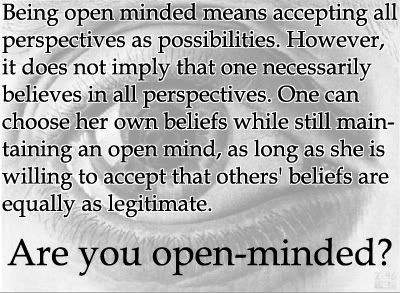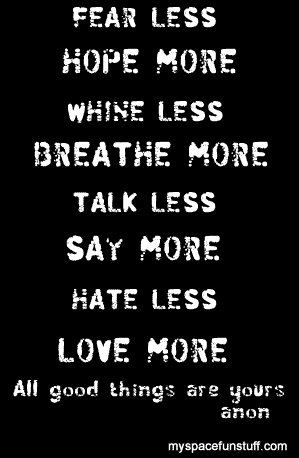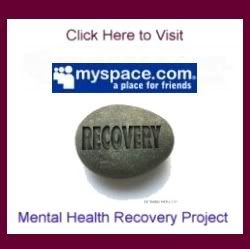How to survive in a toxic work environment...until you can get out of itby Laurie Berkshire, M.A.
The realization you work in a "toxic" environment is stressful enough. Add to that our shaky economic times, ad it can make things worse.
What is a toxic work environment?
Well, it varies from person to person. Here are some ways I determine if a work environment is toxic:
- Rules, protocols and job descriptions are not clearly defined, or frequently change.
When this happens, you're always trying to adjust, re-adjust, guess, and predict the future, keeping you in a constant state of confusion and doubt.
More importantly, it also interferes with your ability to problem-solve, which is a cornerstone of mental health. Knowing how to solve problems gives us a sense of mastery in our environment. However, not knowing the situational boundaries in which you can find solutions for a problem can impair this. Thus, it's difficult to feel calm and balanced when you feel like you have no control over what might happen.
Your workplace interferes with your ability to meet basic human needs
As a human being, you have needs that must be met before you can do anything else. According to Maslow (1943)1, these include:
- Breathing
- Drinking
- Eating
- Excretion
- Sex
- Personal security from crime
- Financial security
- Health and well-being
- Safety net against accidents/illness and the adverse impacts
Source [1]
So if a workplace prevents or impedes your ability to meet these needs, you're likely going to struggle with fatigue and ill-health, as well as feeling of agitation, anxiety, anger, and helplessness.
I worked for 2 years in a place that was always short one staff member. They'd hire someone, then a couple weeks later someone else would quit. And worse, it took a long time to hire people because what the company offered it's employees (i.e. salary, benefits, work-hours, etc) was so lacking that no one was interested in the job.
Situations like this are almost-always a sign (no, a billboard) that you're working in a toxic environment.
* Having a "passive" boss who lets everyone do anything they want can have some advantages, but they're outweighed by the chaos that ensues when there's no managed control over the workplace.
* The problems associated with an "aggressive" boss are self-explanatory. Being bullied is never good.
* A "passive-aggressive boss" is likely the worse because it's the mix of both. You have the face-value impression that everything is ok, but behind your back the boss is bad-mouthing or sabotaging you - and you have no clue until it smacks you in the face (i.e. being fired, a written warning, a demotion, etc.)
So what do you do?
Well, when people are in abusive relationships, there's only one remedy to make things better....get out! Working in a toxic workplace is a similar situation. But when money's tight and jobs are scarce, that's not always an option. So here are ways to survive until you can make your escape:
When you work in a toxic environment, the bad stuff it so evident you can't avoid noticing it. In addition, our brains are hard-wired to look for "threats," which is what's kept the species alive. After all, if our early ancestors took the time to admire a sunset when a lion lurking nearby, none of us would be here, surfing the internet.
So with a brain constantly scanning for bad things, it's easy to focus on what's wrong. You can short-wire this, though, by making an effort to look for good things throughout the day. This doesn't mean you should ignore the bad stuff, because it's good to maintain awareness of it and how it's affecting you.
However, constantly thinking about the bad will create "internal stress" (in the brain and body), which only adds to the external stress in the environment. So, if you can take time to notice what's good in the workplace, it'll help balance this out.
Now, you might be thinking that there's nothing good about where you work, but in life there are very few absolutes. There's got to be something good at the place, no matter how small.
Some "good-things" examples from my own experiences in toxic workplaces are: the nice smell of the soap in the bathroom, a beautiful tree outside the building, having a window in my office, a co-worker with a good sense of humor, and the fact no one noticed when I was 5-10 minutes late (thanks Passive Boss!)
When you work in a toxic environment, there's no shortage of gripe sessions among co-workers. Sure, venting and sharing misery is good for you...to a point. Eventually, this type of negative energy will impact your mood and attitude. So if you're involved in a gripe session and start to feel "down," quietly remove yourself because you've gone past the point where it's helping relieve the stress, and is now just adding more stress.
Marsha Linehan (1993)2 , the founder of Dialectical Behavior Therapy (DBT), adopted the idea that non-judgemental thinking can assist with mental health.
True, we need to make judgements in order to survive. Our brain is trained to make them (see sunset-lion example above.) . However, we often make them about things that are not true threats.
Thus, viewing something non-threatening from a "fact" perspective instead of an "opinion" can help calm your negative emotions. For example:
Opinion: This job sucks (which is perceived as nothing but negative energy in the brain.)
Fact: This job is not the greatest, but it's better than no job. Even though I don't make good money, unemployment benefits would be even less. Since I can't quit right now, it's better than nothing.
This type of fact-viewing can help calm you by balancing both negative and positive energies in the brain...and balance is yet another cornerstone of mental health.
For more info and exercises for non-judgemental stance, visit: dbtselfhelp.com
Source [2]
* Use your "delay-button" and watch what you say when you're at work. Count to 10, bite your tongue, sit on your hands...do whatever you have to do to keep your opinions, anger and negative comments to yourself. In a toxic workplace, seemingly-benign statements can come back to bite you. But also, find someone on "the outside" to vent to, even if you have to pay for it (i.e. counseling.)
* Always keep your eye out for new jobs while also keeping in mind that this is often a long process in a weak economy. In other words, if you look at the want-ads with the I'll-never-find-anything attitude, you're again adding to your own inner-stress. Instead, remind yourself that you're at least trying to do something to change your situation.
* Only accept responsibility for your feelings and needs. The only think you owe a company, your boss, and your co-workers is adequate job performance. If you're not required to work overtime or do extra work (i.e. you won't get fired,) then don't do it. You are not responsible for making sure other people's work gets done. It's not your problem if people quit, call-in sick, or slack-off. That's a responsibility for bosses, which is why they make the big bucks.
* Upgrade your skills, or develop new ones. You might be having a hard time finding another job because you've been at this one for so long, your skills are a bit outdated. For example, you might be a great forklift driver, but you haven't learned how to use the more specialized machines in the shop. Or, just because you have a bachelor's degree in social work doesn't mean you can't follow your dream to be a computer programmer. Take a class, ask for more training, or even go back to school. This will help you see a "future" instead of feeling stuck in your present -misery.
Advice on advice
Advice is best-taken buffet-style because you don't usually eat every single food available. In other words, everything listed here won't work for everyone, but you won't know until you try it. Also, if you've tried it before and it didn't work, then it's probably not worth trying again. And most importantly, if you try everything all at the same time, you'll feel bloated.
Remember...
"A journey of a thousand miles begins with a single step..." (Lao-tzu, Chinese philosopher, 604 BC - 531 BC)
Sources:
[1] Maslow's Hierarchy of Needs - Wikipedia
[2] Behavioral Tech, LLC










